Money beats values. This is also true in tennis. Although the former Chinese Wimbledon doubles champion, Peng Shuai remains absent, the WTA has returned to China with its tournaments. It is simply no longer willing to forego the huge revenues in the world’s biggest sports market because of Peng Shuai’s fate. The WTA’s caving in is a triumph for China, writes Marcel Grzanna.
Taiwan used to be one of the most important partners of the People’s Republic in its period of reform and opening. Capital and corporate knowledge from the island were highly welcome on the mainland. Today, China is technologically stronger and no longer needs Taiwan as much – and is now also arresting Taiwanese citizens for political reasons.
But it is precisely because of the difficult situation on the Taiwan Strait that President Tsai Ing-wen calls for restraint, reports David Demes from Taipei. In her speech on National Day, she said that the only way to preserve peace is by maintaining the status quo. Was her appeal perhaps also addressed to her own party? After all, pro-independence supporters are among the party’s members.

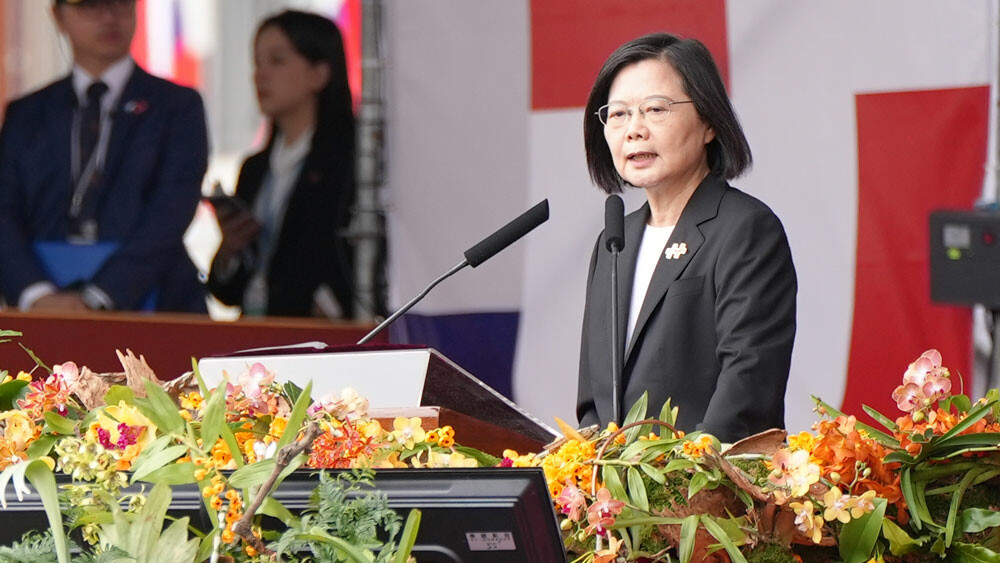
In her last National Day speech before the end of her term, Taiwan’s President Tsai Ing-wen rejected all of China’s claims over the democratic island republic. “Peace is the only option across the strait,” the outgoing president said. “Maintaining the status quo, as the largest common denominator for all sides, is the critical key to ensuring peace.” Tsai will leave office in May next year after eight years.
Taiwan is the “Taiwan of the world” and is internationally valued as a reliable partner, she said. “international support for us has reached an unprecedented height.” Against this background, Taiwan could face China confidently and calmly today. At the same time, a way must be found to live together peacefully and allow free and unencumbered encounters between people on both sides of the Taiwan Strait, Tsai said on Tuesday.
Such encounters have become increasingly rare in recent years. After Tsai took office in 2016, the Chinese government gradually stopped all tour groups and individual travel to Taiwan. The number of Taiwanese travelers to China has also not yet recovered after the end of China’s Covid measures. Many Taiwanese fear being targeted by Chinese security authorities.
According to Taiwan’s intelligence service, harassment of Taiwanese travelers has noticeably increased. Since July, nine citizens have been interrogated and frisked when entering China, Tsai Ming-yen, head of Taiwan’s intelligence agency, told a parliamentary hearing last week. Their mobile phones and laptops had also been searched.
The checks have a clear political focus. “Chinese immigration officers check whether the person has commented on political issues or said anything critical of the Chinese Communist Party [CCP] in their communications with others. Most of the Taiwanese who were interrogated were involved in politically active groups or were academic experts. Chinese who are married to a Taiwanese could be treated the same way,” the intelligence chief said.
The exact number of Taiwanese citizens currently in Chinese custody, on the other hand, is not known. Taiwan’s government is keeping tight-lipped about this. “We therefore cannot say for sure whether the numbers have increased,” says Shih Yi-Hsiang, Secretary General of the Taiwan Association for Human Rights. “However, due to the new anti-espionage law and the authorities’ calls to the population to expose spies, there is concern that they will increase rapidly,” the human rights expert told Table.Media.
Several high-profile cases of Taiwanese citizens arrested in China have caused a stir in recent years. As recently as March, renowned publicist Li Yanhe, who also uses the pseudonym Fuca, disappeared when he was about to renounce his Chinese citizenship. As founder of the Gusa Publishing House, Li published many books in Taiwan that questioned the Communist Party’s worldview.
Last week, a Taiwanese citizen whose trail had already been lost in August became public. The Chinese-born woman had lived in Taiwan for over 20 years and was active in a political organization close to President Tsai Ing-wen.
Lee Meng-chu was also invited to Tsai’s speech in Taipei. The 50-year-old entrepreneur returned to Taiwan only last month after a four-year odyssey. In August 2019, he was arrested while crossing the border from Shenzhen to Hong Kong for carrying a handful of flyers calling for solidarity between Taiwan and Hong Kong. Chinese state security eventually used photos on his mobile phone showing Chinese troop deployment on the Hong Kong border to convict him of treason and espionage.
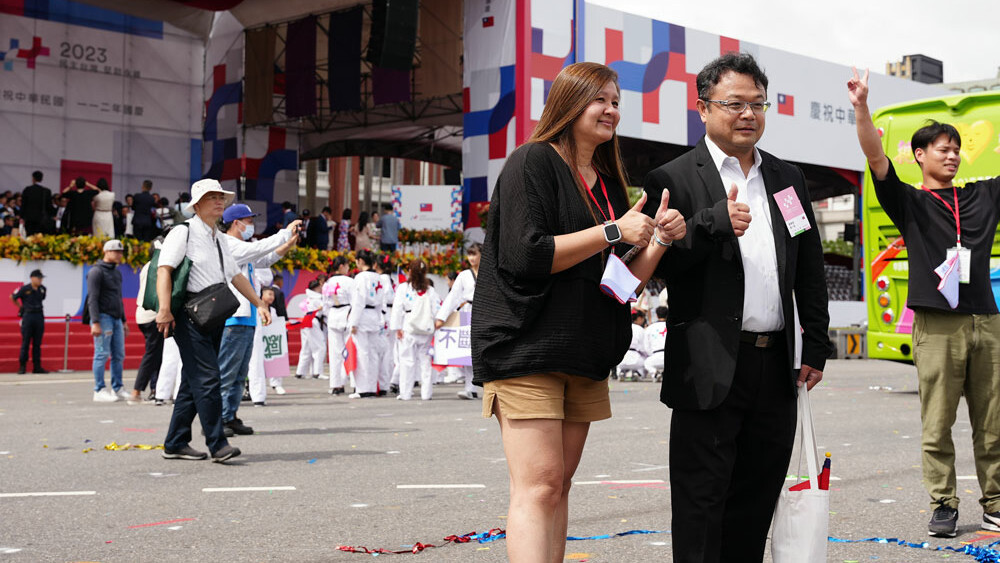
Lee sees himself as a victim of Chinese hostage diplomacy. “With my arrest, China wanted to intimidate the Taiwanese government,” Lee told Table.Media. He said it was no coincidence that he was arrested on 20 August 2019 – one day after the Chinese Taiwan Affairs Office urged Taipei to stay out of the Hong Kong protests.
Lee was held for 72 days without a lawyer or daylight access in a so-called black jail. “Three men at a time guarded me in three shifts,” the Taiwanese recalls. He was later forced to confess, which was broadcast on Chinese state television, and sentenced to one year and ten months in prison.
Back in Taiwan, Lee Meng-chu calls on his compatriots to learn from his case and exercise more caution. “If you absolutely have to travel to China, then you should at least take an empty mobile phone and not the laptop you normally use,” says Lee. He himself will not travel to China again. “This country is not the China of 10 or 12 years ago. There is a Cultural Revolution 2.0 there now.”
International travelers are also giving the People’s Republic an increasingly wide berth. The Wall Street Journal recently reported on the fear among foreign executives of business trips to China. According to the business paper, the country is becoming a “No-Go Zone for Executives.”
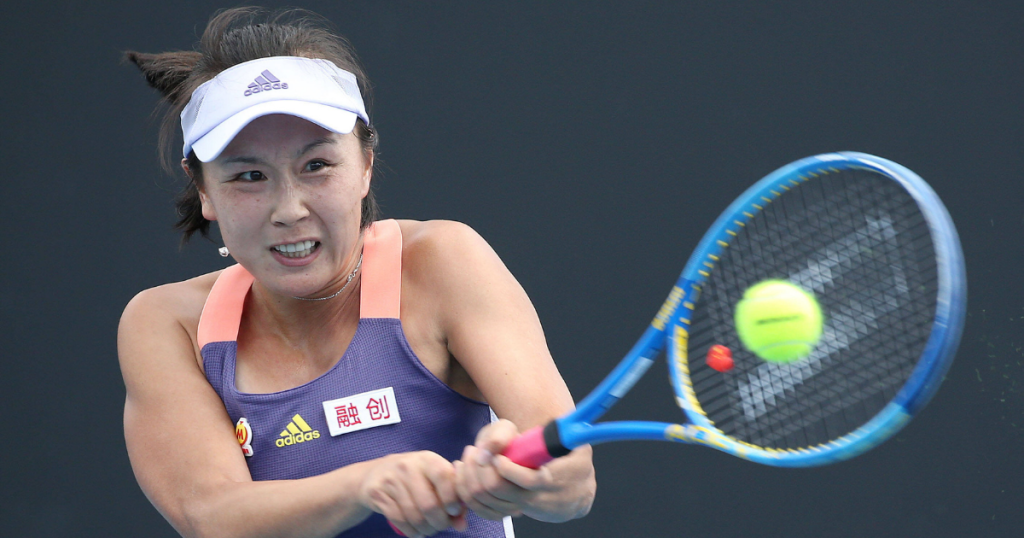
It is China weeks at the World Tennis Association (WTA). Guangzhou, Ningbo, Beijing, Zhengzhou, Nanchang, Zhuhai – the world’s female elite travel from one major sporting event to the next, with high prize money and eyes on them from all over the world. Almost all the big names in the sport are in the People’s Republic. Only one is absent, who would undoubtedly have liked to be seen under other circumstances – former Chinese Wimbledon doubles champion Peng Shuai.
The 37-year-old remains missing. In late 2021, she accused a former Chinese vice-premier of sexual assault on social media, then went silent and only resurfaced on the sidelines of the Winter Olympics. She has not made a public appearance since.
Where is Peng Shuai? The question multiplied via hashtags on social media, prompting the WTA to withdraw from the People’s Republic, citing human rights and principles. Their demands: Future tournaments only in exchange for Peng’s freedom. The WTA received much praise for its seemingly resolute stance. In reality, however, the withdrawal turned out to be only a snapshot.
The renunciation of tournaments in China last year was unavoidable anyway due to COVID-19. With its return to China this season, the WTA admits it is no longer willing to sacrifice huge revenues because of Peng Shuai’s fate. “After 16 months of suspended tennis competition in China and sustained efforts at achieving our original requests, the situation has shown no sign of changing. We have concluded we will never fully secure those goals, and it will be our players and tournaments who ultimately will be paying an extraordinary price for their sacrifices,” the Association said in a statement.
The WTA cites assurances from the Chinese association “that WTA players and staff operating in China will be safe and protected while in the country.” Table.Media has learned that the International Olympic Committee’s (IOC) Athletes’ Commission has been in contact with Peng many times by phone. Each time, she told them she was fine.
The top-class tournaments are a great sporting success for the Chinese Tennis Association. But the political dimension is much greater. The return of the WTA is a real triumph for the Chinese government. Once again, but rarely with as much publicity as in this case, an internationally active player has become weak in the face of the large Chinese market – a precedent for future justifications by other organizations.
The praise from human rights organizations for the WTA’s initial position is now mixed with disappointment. “I still give credit to the WTA for saying what it said, because all businesses expected the market to open. So it took a risk at that time,” Wang Yaqiu of Human Rights Watch told Reuters. The turnaround, however, is the signal that the WTA has ultimately succumbed to profit.
Wang hoped in vain that the WTA would raise the issue of Peng at every opportunity during its China tournaments, including to the TV cameras. So far, nothing of the sort has happened. The wave of international public solidarity for Peng has also subsided. “I have done everything I could,” Australian activist Drew Pavlou told China.Table. Pavlou had repeatedly protested the treatment of Peng Shuai in the stands during matches at the world’s biggest tennis tournaments and was subsequently escorted out of the stadiums by security staff.
China has been at the heart of the WTA’s aggressive expansion into Asia. As early as 2008, the Association opened a branch in Beijing. After an initial two tournaments per year, the number of events grew to nine by 2019. At that time, the WTA finals of the eight best players of the season took place in Shenzhen for the first time. Prize money totaling over 30 million US dollars was played out in the People’s Republic before the Covid pandemic paralyzed the tennis scene.
Starting next season, Shenzhen will host the season finals for several years in a row, contrary to custom. The contract between the WTA and the organizers runs until 2028.
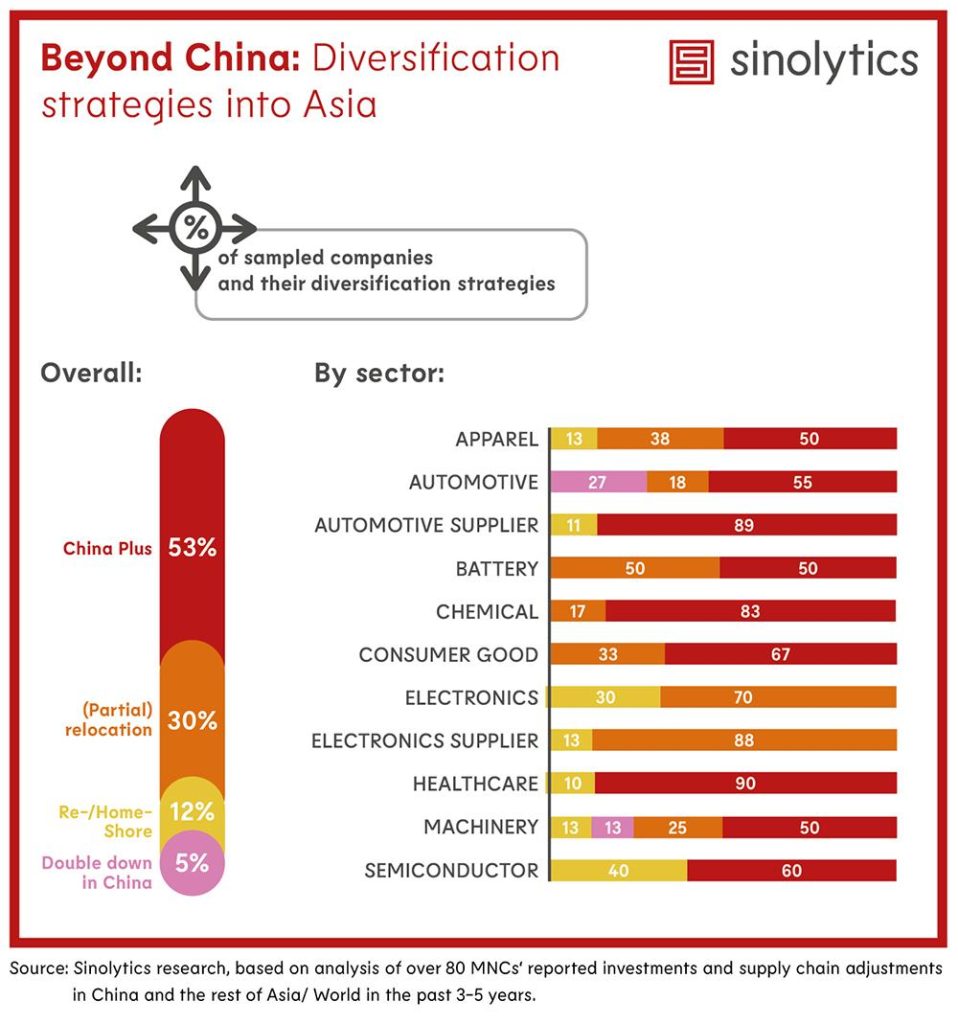
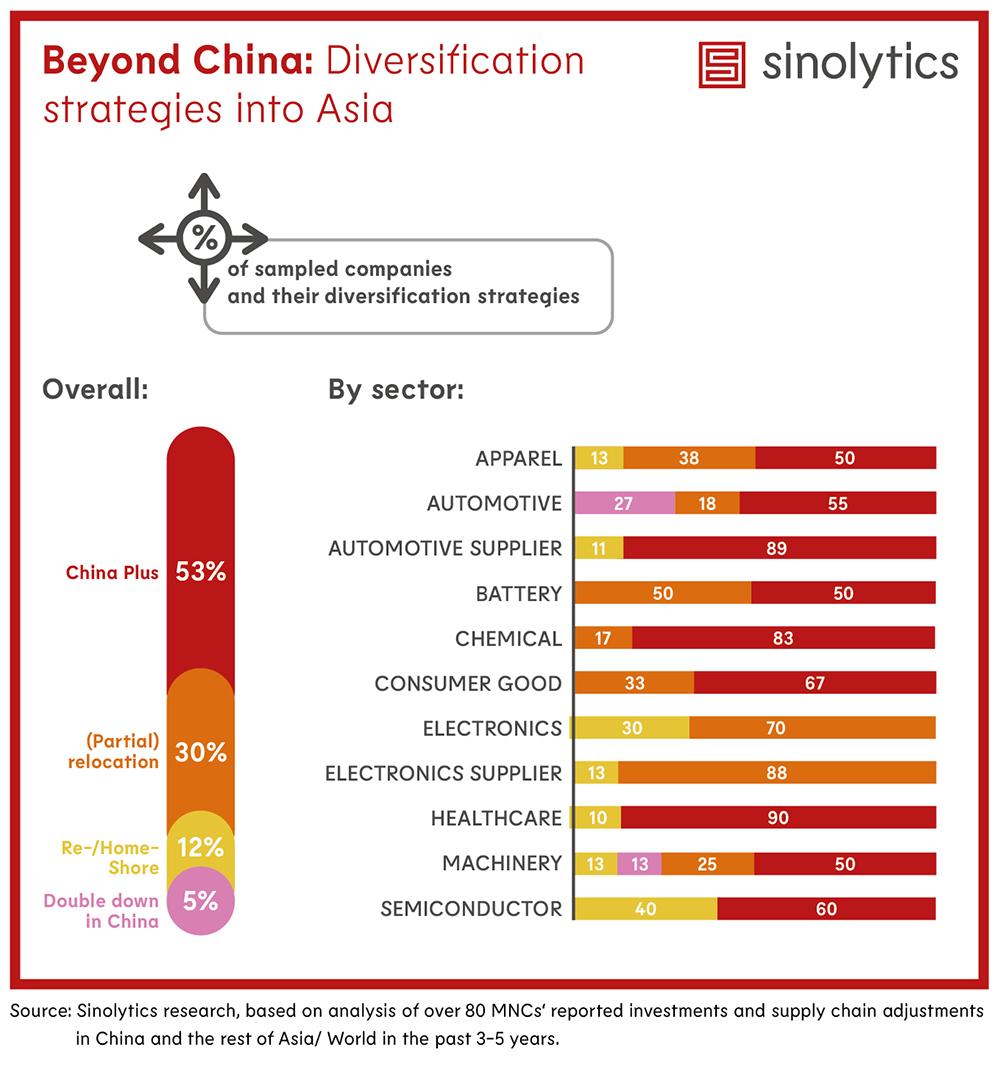
Sinolytics is a European research-based consultancy entirely focused on China. It advises European companies on their strategic orientation and concrete business activities in the People’s Republic.
China’s New Silk Road infrastructure campaign has brought the more than 130 participating countries not only billions in investment projects but also an enormous mountain of debt. This is reported by the news agency AFP. In the ten years since the initiative’s launch, it has led to construction contracts worth the equivalent of 1.9 trillion euros, according to the government in Beijing. The participating countries owe the Chinese export bank Eximbank more than 280 billion euros.
The published documents do not specify which country has how much debt. Information on interest costs is also missing. In any case, the figure cited is “vastly underestimated,” Niva Yau, a researcher at the Global China Hub, part of the Atlantic Council think tank, is quoted as saying by AFP. “There have been other academic research papers that have written on these hidden debts that could add up to 800 billion US dollars.”
Overall, intransparency is a key problem, Yau continued. “We simply don’t have information about these projects and how these figures have added up.” Next week, Beijing will host the third International Cooperation Forum on the New Silk Road. Russia’s Foreign Minister Sergei Lavrov has firmly confirmed his attendance, and Russia’s President Vladimir Putin is also expected to attend. flee
Following electric cars, the EU Commission apparently also wants to investigate subsidies for Chinese steel companies more closely. The Financial Times reported on Tuesday, citing two people familiar with the matter, that an investigation into possible market distortions is also planned. According to the report, the official announcement of the EU investigation will be made at a summit meeting with the US this month. US President Joe Biden has invited EU Commission President Ursula von der Leyen and EU Council President Charles Michel for talks on 20 October.
The EU wants to follow the US government’s efforts to protect its own industry from cheap suppliers. According to the report, Brussels agreed to the move in return for preventing the reintroduction of tariffs on EU steel. Former President Donald Trump had imposed these tariffs in 2018.
Brussels and Washington had agreed on a suspension as a temporary solution. The long-term solution will now be the Global Arrangement on Sustainable Steel and Aluminium (GSA), to be announced at next week’s meeting. The EU officials reportedly said President Joe Biden intended the move to protect the jobs of steelworkers in swing states such as Pennsylvania and Ohio to prevent Trump from making a comeback next year.
An anti-subsidy investigation against Chinese-made EVs has been underway since last week. Specifically, it concerns the suspicion that government subsidies for Chinese EV manufacturers negatively impact European producers. Should the investigation confirm this suspicion, the EU Commission could take measures to establish fair conditions of competition. The anti-subsidy investigation will be “thorough, fair, and fact-based,” Commission President Ursula von der Leyen said last week. She announced the investigation in her State of the Union address in mid-September. ari
Ailing real estate group Country Garden warned on Tuesday of a possible default on payments on overseas debt. “Such non-payment may lead to relevant creditors of the Group demanding acceleration of payment of the relevant indebtedness owed to them or pursuing enforcement action,” the People’s Republic’s largest private real estate developer said. It said the liquidity situation will likely remain tight in the medium to long term. Its shares subsequently slumped by almost ten percent in Hong Kong.
The volume of Country Garden’s foreign bonds amounts to 10.96 billion dollars. In addition, there are foreign currency loans of 42.4 billion dollars. The group has since appointed advisors to assess its capital and liquidity position. According to analyst Jeff Zhang at research firm Morningstar, this move showed “whether the company will default hinges on the outcome of overseas debt restructuring and the next two weeks will be crucial.” He said he does not expect Country Garden’s financial situation to ease as consumers shy away from buying property and banks are reluctant to commit to the group.
On Monday, interest on two bonds totaling 66.8 million dollars became due. Country Garden announced that it had missed some principal payments on certain debts amounting to the equivalent of 60 million dollars. Last month, the property developer had already missed payments of 15 and 40 million dollars, respectively. If the group fails to remit the first sum by the end of the grace period on 17 October, all foreign debt could be considered a default. However, Country Garden reached an agreement with domestic creditors on Tuesday on a maturity extension for several bonds with a volume of around two billion dollars.
Due to a slowing economy and rising interest rates, the Chinese real estate sector, which accounts for a quarter of the People’s Republic’s economic output, is in crisis. Experts fear social unrest because condominiums have not been finished. Moreover, a collapse could affect the second-largest economy and also growth in other regions. That is why analysts expect a government rescue package for struggling companies. rtr
A car crashed into the lobby of the Chinese consulate in San Francisco for reasons that remain unclear. According to a spokeswoman, police officers confronted the man driving the car and opened fire on him. Responding officers administered first aid, but the man succumbed to his injuries.
China condemned the incident. The People’s Republic calls on the US to conduct a swift investigation and take effective steps to ensure the security of Chinese diplomatic missions, said a Foreign Ministry spokesperson. flee

If a Chinese tech firm wants to venture into generative artificial intelligence it is bound to face significant hurdles arising from stringent government control, at least according to popular perceptions. China was, after all, among the first countries to introduce legislation regulating the technology. But a closer look at the so-called interim measures on AI indicates that far from hampering the industry, China’s government is actively seeking to bolster it.
This should not be surprising. Already a global leader in AI (trailing only the United States), China has big ambitions in the sector – and the means to ensure that its legal and regulatory landscape encourages and facilitates indigenous innovation.
The interim measures on generative AI reflect this strategic motivation. To be sure, a preliminary draft of the legislation released by the Cyberspace Administration of China (CAC) included some encumbering provisions. For example, it would have required providers of AI services to ensure that the training data and the model outputs be “true and accurate,” and it gave firms just three months to recalibrate foundational models producing prohibited content.
But these rules were watered down significantly in the final legislation. The interim measures also significantly narrowed the scope of application, targeting only public-facing companies and mandating content-based security assessment solely for those wielding influence over public opinion.
While securing approval from the regulatory authorities does entail additional costs and a degree of uncertainty, there is no reason to think that Chinese tech giants – with their deep pockets and strong capacity for compliance – will be deterred. Nor is there reason to think that the CAC would seek to create unnecessary roadblocks: just two weeks after the interim measures went into effect, the agency gave the green light to eight companies, including Baidu and SenseTime, to launch their chatbots.
Overall, the interim measures advance a cautious and tolerant regulatory approach, which should assuage industry concerns over potential policy risks. The legislation even includes provisions explicitly encouraging collaboration among major stakeholders in the AI supply chain, reflecting a recognition that technological innovation depends on exchanges between government, industry, and academia.
So, while China was an early mover in regulating generative AI, it is also highly supportive of the technology and the companies developing it. Chinese AI firms might even have a competitive advantage over their American and European counterparts, which are facing strong regulatory headwinds and proliferating legal challenges.
In the European Union, the Digital Services Act, which entered into force last year, imposes a raft of transparency and due-diligence obligations on large online platforms, with massive penalties for violators. The General Data Protection Regulation – the world’s toughest data-privacy and security law – is also threatening to trip up AI firms. Already, OpenAI – the company behind ChatGPT – is under scrutiny in France, Ireland, Italy, Poland, and Spain for alleged breaches of GDPR provisions, with the Italian authorities earlier this year going so far as to halt the firm’s operations temporarily.
The EU’s AI Act, which is expected to be finalized by the end of 2023, is likely to saddle firms with a host of onerous pre-launch commitments for AI applications. For example, the latest draft endorsed by the European Parliament would require firms to provide a detailed summary of the copyrighted material used to train models – a requirement that could leave AI developers vulnerable to lawsuits.
American firms know firsthand how burdensome such legal proceedings can be. The US federal government has yet to introduce comprehensive AI regulation, and existing state and sectoral regulation is patchy. But prominent AI companies such as OpenAI, Google, and Meta are grappling with private litigation related to everything from copyright infringement to data-privacy violations, defamation, and discrimination.
The potential costs of losing these legal battles are high. Beyond hefty fines, firms might have to adjust their operations to meet stringent remedies. In an effort to preempt further litigation, OpenAI is already seeking to negotiate content-licensing agreements with leading news outlets for AI training data.
Chinese firms, by contrast, can probably expect both regulatory agencies and courts – following official directives from the central government – to take a lenient approach to AI-related legal infringements. That is what happened when the consumer tech industry was starting out.
None of this is to say that China’s growth-centric regulatory approach is the right one. On the contrary, the government’s failure to protect the legitimate interests of Chinese citizens could have long-term consequences for productivity and growth, and shielding large tech firms from accountability threatens to entrench further their dominant market position, ultimately stifling innovation. Nonetheless, it appears clear that, at least in the short term, Chinese regulation will act as an enabler, rather than an impediment, for the country’s AI firms.
Angela Huyue Zhang, Associate Professor of Law and Director of the Center for Chinese Law at the University of Hong Kong, is the author of Chinese Antitrust Exceptionalism: How the Rise of China Challenges Global Regulation (Oxford University Press, 2021).
Copyright: Project Syndicate, 2023.
www.project-syndicate.org
Stefan Bredohl is the new Consul General for Hong Kong and Macao, replacing his wife Stefanie Seedig, who held the post for two years. She will continue to serve as Deputy Consul General.
So the Bredohls have swapped jobs. Both have worked in the German Foreign Service for over 25 years and are now pioneers in a job-sharing program designed to support and strengthen the work-life balance of German diplomats.
Is something changing in your organization? Let us know at heads@table.media!
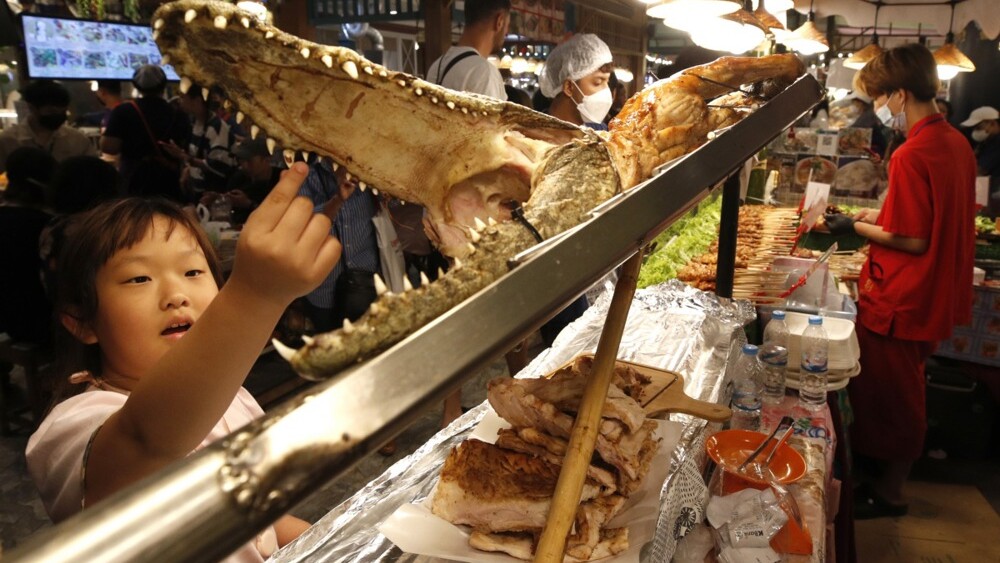
Eating exotic animals is a vicious stereotype about Asia. Well. Here is a whole roasted alligator on display in a shopping center in Bangkok. The meat is especially popular with Chinese tourists. After all, it is said to be particularly healthy. Crocodile meat is supposedly good for the cardiovascular system.
Money beats values. This is also true in tennis. Although the former Chinese Wimbledon doubles champion, Peng Shuai remains absent, the WTA has returned to China with its tournaments. It is simply no longer willing to forego the huge revenues in the world’s biggest sports market because of Peng Shuai’s fate. The WTA’s caving in is a triumph for China, writes Marcel Grzanna.
Taiwan used to be one of the most important partners of the People’s Republic in its period of reform and opening. Capital and corporate knowledge from the island were highly welcome on the mainland. Today, China is technologically stronger and no longer needs Taiwan as much – and is now also arresting Taiwanese citizens for political reasons.
But it is precisely because of the difficult situation on the Taiwan Strait that President Tsai Ing-wen calls for restraint, reports David Demes from Taipei. In her speech on National Day, she said that the only way to preserve peace is by maintaining the status quo. Was her appeal perhaps also addressed to her own party? After all, pro-independence supporters are among the party’s members.


In her last National Day speech before the end of her term, Taiwan’s President Tsai Ing-wen rejected all of China’s claims over the democratic island republic. “Peace is the only option across the strait,” the outgoing president said. “Maintaining the status quo, as the largest common denominator for all sides, is the critical key to ensuring peace.” Tsai will leave office in May next year after eight years.
Taiwan is the “Taiwan of the world” and is internationally valued as a reliable partner, she said. “international support for us has reached an unprecedented height.” Against this background, Taiwan could face China confidently and calmly today. At the same time, a way must be found to live together peacefully and allow free and unencumbered encounters between people on both sides of the Taiwan Strait, Tsai said on Tuesday.
Such encounters have become increasingly rare in recent years. After Tsai took office in 2016, the Chinese government gradually stopped all tour groups and individual travel to Taiwan. The number of Taiwanese travelers to China has also not yet recovered after the end of China’s Covid measures. Many Taiwanese fear being targeted by Chinese security authorities.
According to Taiwan’s intelligence service, harassment of Taiwanese travelers has noticeably increased. Since July, nine citizens have been interrogated and frisked when entering China, Tsai Ming-yen, head of Taiwan’s intelligence agency, told a parliamentary hearing last week. Their mobile phones and laptops had also been searched.
The checks have a clear political focus. “Chinese immigration officers check whether the person has commented on political issues or said anything critical of the Chinese Communist Party [CCP] in their communications with others. Most of the Taiwanese who were interrogated were involved in politically active groups or were academic experts. Chinese who are married to a Taiwanese could be treated the same way,” the intelligence chief said.
The exact number of Taiwanese citizens currently in Chinese custody, on the other hand, is not known. Taiwan’s government is keeping tight-lipped about this. “We therefore cannot say for sure whether the numbers have increased,” says Shih Yi-Hsiang, Secretary General of the Taiwan Association for Human Rights. “However, due to the new anti-espionage law and the authorities’ calls to the population to expose spies, there is concern that they will increase rapidly,” the human rights expert told Table.Media.
Several high-profile cases of Taiwanese citizens arrested in China have caused a stir in recent years. As recently as March, renowned publicist Li Yanhe, who also uses the pseudonym Fuca, disappeared when he was about to renounce his Chinese citizenship. As founder of the Gusa Publishing House, Li published many books in Taiwan that questioned the Communist Party’s worldview.
Last week, a Taiwanese citizen whose trail had already been lost in August became public. The Chinese-born woman had lived in Taiwan for over 20 years and was active in a political organization close to President Tsai Ing-wen.
Lee Meng-chu was also invited to Tsai’s speech in Taipei. The 50-year-old entrepreneur returned to Taiwan only last month after a four-year odyssey. In August 2019, he was arrested while crossing the border from Shenzhen to Hong Kong for carrying a handful of flyers calling for solidarity between Taiwan and Hong Kong. Chinese state security eventually used photos on his mobile phone showing Chinese troop deployment on the Hong Kong border to convict him of treason and espionage.

Lee sees himself as a victim of Chinese hostage diplomacy. “With my arrest, China wanted to intimidate the Taiwanese government,” Lee told Table.Media. He said it was no coincidence that he was arrested on 20 August 2019 – one day after the Chinese Taiwan Affairs Office urged Taipei to stay out of the Hong Kong protests.
Lee was held for 72 days without a lawyer or daylight access in a so-called black jail. “Three men at a time guarded me in three shifts,” the Taiwanese recalls. He was later forced to confess, which was broadcast on Chinese state television, and sentenced to one year and ten months in prison.
Back in Taiwan, Lee Meng-chu calls on his compatriots to learn from his case and exercise more caution. “If you absolutely have to travel to China, then you should at least take an empty mobile phone and not the laptop you normally use,” says Lee. He himself will not travel to China again. “This country is not the China of 10 or 12 years ago. There is a Cultural Revolution 2.0 there now.”
International travelers are also giving the People’s Republic an increasingly wide berth. The Wall Street Journal recently reported on the fear among foreign executives of business trips to China. According to the business paper, the country is becoming a “No-Go Zone for Executives.”

It is China weeks at the World Tennis Association (WTA). Guangzhou, Ningbo, Beijing, Zhengzhou, Nanchang, Zhuhai – the world’s female elite travel from one major sporting event to the next, with high prize money and eyes on them from all over the world. Almost all the big names in the sport are in the People’s Republic. Only one is absent, who would undoubtedly have liked to be seen under other circumstances – former Chinese Wimbledon doubles champion Peng Shuai.
The 37-year-old remains missing. In late 2021, she accused a former Chinese vice-premier of sexual assault on social media, then went silent and only resurfaced on the sidelines of the Winter Olympics. She has not made a public appearance since.
Where is Peng Shuai? The question multiplied via hashtags on social media, prompting the WTA to withdraw from the People’s Republic, citing human rights and principles. Their demands: Future tournaments only in exchange for Peng’s freedom. The WTA received much praise for its seemingly resolute stance. In reality, however, the withdrawal turned out to be only a snapshot.
The renunciation of tournaments in China last year was unavoidable anyway due to COVID-19. With its return to China this season, the WTA admits it is no longer willing to sacrifice huge revenues because of Peng Shuai’s fate. “After 16 months of suspended tennis competition in China and sustained efforts at achieving our original requests, the situation has shown no sign of changing. We have concluded we will never fully secure those goals, and it will be our players and tournaments who ultimately will be paying an extraordinary price for their sacrifices,” the Association said in a statement.
The WTA cites assurances from the Chinese association “that WTA players and staff operating in China will be safe and protected while in the country.” Table.Media has learned that the International Olympic Committee’s (IOC) Athletes’ Commission has been in contact with Peng many times by phone. Each time, she told them she was fine.
The top-class tournaments are a great sporting success for the Chinese Tennis Association. But the political dimension is much greater. The return of the WTA is a real triumph for the Chinese government. Once again, but rarely with as much publicity as in this case, an internationally active player has become weak in the face of the large Chinese market – a precedent for future justifications by other organizations.
The praise from human rights organizations for the WTA’s initial position is now mixed with disappointment. “I still give credit to the WTA for saying what it said, because all businesses expected the market to open. So it took a risk at that time,” Wang Yaqiu of Human Rights Watch told Reuters. The turnaround, however, is the signal that the WTA has ultimately succumbed to profit.
Wang hoped in vain that the WTA would raise the issue of Peng at every opportunity during its China tournaments, including to the TV cameras. So far, nothing of the sort has happened. The wave of international public solidarity for Peng has also subsided. “I have done everything I could,” Australian activist Drew Pavlou told China.Table. Pavlou had repeatedly protested the treatment of Peng Shuai in the stands during matches at the world’s biggest tennis tournaments and was subsequently escorted out of the stadiums by security staff.
China has been at the heart of the WTA’s aggressive expansion into Asia. As early as 2008, the Association opened a branch in Beijing. After an initial two tournaments per year, the number of events grew to nine by 2019. At that time, the WTA finals of the eight best players of the season took place in Shenzhen for the first time. Prize money totaling over 30 million US dollars was played out in the People’s Republic before the Covid pandemic paralyzed the tennis scene.
Starting next season, Shenzhen will host the season finals for several years in a row, contrary to custom. The contract between the WTA and the organizers runs until 2028.


Sinolytics is a European research-based consultancy entirely focused on China. It advises European companies on their strategic orientation and concrete business activities in the People’s Republic.
China’s New Silk Road infrastructure campaign has brought the more than 130 participating countries not only billions in investment projects but also an enormous mountain of debt. This is reported by the news agency AFP. In the ten years since the initiative’s launch, it has led to construction contracts worth the equivalent of 1.9 trillion euros, according to the government in Beijing. The participating countries owe the Chinese export bank Eximbank more than 280 billion euros.
The published documents do not specify which country has how much debt. Information on interest costs is also missing. In any case, the figure cited is “vastly underestimated,” Niva Yau, a researcher at the Global China Hub, part of the Atlantic Council think tank, is quoted as saying by AFP. “There have been other academic research papers that have written on these hidden debts that could add up to 800 billion US dollars.”
Overall, intransparency is a key problem, Yau continued. “We simply don’t have information about these projects and how these figures have added up.” Next week, Beijing will host the third International Cooperation Forum on the New Silk Road. Russia’s Foreign Minister Sergei Lavrov has firmly confirmed his attendance, and Russia’s President Vladimir Putin is also expected to attend. flee
Following electric cars, the EU Commission apparently also wants to investigate subsidies for Chinese steel companies more closely. The Financial Times reported on Tuesday, citing two people familiar with the matter, that an investigation into possible market distortions is also planned. According to the report, the official announcement of the EU investigation will be made at a summit meeting with the US this month. US President Joe Biden has invited EU Commission President Ursula von der Leyen and EU Council President Charles Michel for talks on 20 October.
The EU wants to follow the US government’s efforts to protect its own industry from cheap suppliers. According to the report, Brussels agreed to the move in return for preventing the reintroduction of tariffs on EU steel. Former President Donald Trump had imposed these tariffs in 2018.
Brussels and Washington had agreed on a suspension as a temporary solution. The long-term solution will now be the Global Arrangement on Sustainable Steel and Aluminium (GSA), to be announced at next week’s meeting. The EU officials reportedly said President Joe Biden intended the move to protect the jobs of steelworkers in swing states such as Pennsylvania and Ohio to prevent Trump from making a comeback next year.
An anti-subsidy investigation against Chinese-made EVs has been underway since last week. Specifically, it concerns the suspicion that government subsidies for Chinese EV manufacturers negatively impact European producers. Should the investigation confirm this suspicion, the EU Commission could take measures to establish fair conditions of competition. The anti-subsidy investigation will be “thorough, fair, and fact-based,” Commission President Ursula von der Leyen said last week. She announced the investigation in her State of the Union address in mid-September. ari
Ailing real estate group Country Garden warned on Tuesday of a possible default on payments on overseas debt. “Such non-payment may lead to relevant creditors of the Group demanding acceleration of payment of the relevant indebtedness owed to them or pursuing enforcement action,” the People’s Republic’s largest private real estate developer said. It said the liquidity situation will likely remain tight in the medium to long term. Its shares subsequently slumped by almost ten percent in Hong Kong.
The volume of Country Garden’s foreign bonds amounts to 10.96 billion dollars. In addition, there are foreign currency loans of 42.4 billion dollars. The group has since appointed advisors to assess its capital and liquidity position. According to analyst Jeff Zhang at research firm Morningstar, this move showed “whether the company will default hinges on the outcome of overseas debt restructuring and the next two weeks will be crucial.” He said he does not expect Country Garden’s financial situation to ease as consumers shy away from buying property and banks are reluctant to commit to the group.
On Monday, interest on two bonds totaling 66.8 million dollars became due. Country Garden announced that it had missed some principal payments on certain debts amounting to the equivalent of 60 million dollars. Last month, the property developer had already missed payments of 15 and 40 million dollars, respectively. If the group fails to remit the first sum by the end of the grace period on 17 October, all foreign debt could be considered a default. However, Country Garden reached an agreement with domestic creditors on Tuesday on a maturity extension for several bonds with a volume of around two billion dollars.
Due to a slowing economy and rising interest rates, the Chinese real estate sector, which accounts for a quarter of the People’s Republic’s economic output, is in crisis. Experts fear social unrest because condominiums have not been finished. Moreover, a collapse could affect the second-largest economy and also growth in other regions. That is why analysts expect a government rescue package for struggling companies. rtr
A car crashed into the lobby of the Chinese consulate in San Francisco for reasons that remain unclear. According to a spokeswoman, police officers confronted the man driving the car and opened fire on him. Responding officers administered first aid, but the man succumbed to his injuries.
China condemned the incident. The People’s Republic calls on the US to conduct a swift investigation and take effective steps to ensure the security of Chinese diplomatic missions, said a Foreign Ministry spokesperson. flee

If a Chinese tech firm wants to venture into generative artificial intelligence it is bound to face significant hurdles arising from stringent government control, at least according to popular perceptions. China was, after all, among the first countries to introduce legislation regulating the technology. But a closer look at the so-called interim measures on AI indicates that far from hampering the industry, China’s government is actively seeking to bolster it.
This should not be surprising. Already a global leader in AI (trailing only the United States), China has big ambitions in the sector – and the means to ensure that its legal and regulatory landscape encourages and facilitates indigenous innovation.
The interim measures on generative AI reflect this strategic motivation. To be sure, a preliminary draft of the legislation released by the Cyberspace Administration of China (CAC) included some encumbering provisions. For example, it would have required providers of AI services to ensure that the training data and the model outputs be “true and accurate,” and it gave firms just three months to recalibrate foundational models producing prohibited content.
But these rules were watered down significantly in the final legislation. The interim measures also significantly narrowed the scope of application, targeting only public-facing companies and mandating content-based security assessment solely for those wielding influence over public opinion.
While securing approval from the regulatory authorities does entail additional costs and a degree of uncertainty, there is no reason to think that Chinese tech giants – with their deep pockets and strong capacity for compliance – will be deterred. Nor is there reason to think that the CAC would seek to create unnecessary roadblocks: just two weeks after the interim measures went into effect, the agency gave the green light to eight companies, including Baidu and SenseTime, to launch their chatbots.
Overall, the interim measures advance a cautious and tolerant regulatory approach, which should assuage industry concerns over potential policy risks. The legislation even includes provisions explicitly encouraging collaboration among major stakeholders in the AI supply chain, reflecting a recognition that technological innovation depends on exchanges between government, industry, and academia.
So, while China was an early mover in regulating generative AI, it is also highly supportive of the technology and the companies developing it. Chinese AI firms might even have a competitive advantage over their American and European counterparts, which are facing strong regulatory headwinds and proliferating legal challenges.
In the European Union, the Digital Services Act, which entered into force last year, imposes a raft of transparency and due-diligence obligations on large online platforms, with massive penalties for violators. The General Data Protection Regulation – the world’s toughest data-privacy and security law – is also threatening to trip up AI firms. Already, OpenAI – the company behind ChatGPT – is under scrutiny in France, Ireland, Italy, Poland, and Spain for alleged breaches of GDPR provisions, with the Italian authorities earlier this year going so far as to halt the firm’s operations temporarily.
The EU’s AI Act, which is expected to be finalized by the end of 2023, is likely to saddle firms with a host of onerous pre-launch commitments for AI applications. For example, the latest draft endorsed by the European Parliament would require firms to provide a detailed summary of the copyrighted material used to train models – a requirement that could leave AI developers vulnerable to lawsuits.
American firms know firsthand how burdensome such legal proceedings can be. The US federal government has yet to introduce comprehensive AI regulation, and existing state and sectoral regulation is patchy. But prominent AI companies such as OpenAI, Google, and Meta are grappling with private litigation related to everything from copyright infringement to data-privacy violations, defamation, and discrimination.
The potential costs of losing these legal battles are high. Beyond hefty fines, firms might have to adjust their operations to meet stringent remedies. In an effort to preempt further litigation, OpenAI is already seeking to negotiate content-licensing agreements with leading news outlets for AI training data.
Chinese firms, by contrast, can probably expect both regulatory agencies and courts – following official directives from the central government – to take a lenient approach to AI-related legal infringements. That is what happened when the consumer tech industry was starting out.
None of this is to say that China’s growth-centric regulatory approach is the right one. On the contrary, the government’s failure to protect the legitimate interests of Chinese citizens could have long-term consequences for productivity and growth, and shielding large tech firms from accountability threatens to entrench further their dominant market position, ultimately stifling innovation. Nonetheless, it appears clear that, at least in the short term, Chinese regulation will act as an enabler, rather than an impediment, for the country’s AI firms.
Angela Huyue Zhang, Associate Professor of Law and Director of the Center for Chinese Law at the University of Hong Kong, is the author of Chinese Antitrust Exceptionalism: How the Rise of China Challenges Global Regulation (Oxford University Press, 2021).
Copyright: Project Syndicate, 2023.
www.project-syndicate.org
Stefan Bredohl is the new Consul General for Hong Kong and Macao, replacing his wife Stefanie Seedig, who held the post for two years. She will continue to serve as Deputy Consul General.
So the Bredohls have swapped jobs. Both have worked in the German Foreign Service for over 25 years and are now pioneers in a job-sharing program designed to support and strengthen the work-life balance of German diplomats.
Is something changing in your organization? Let us know at heads@table.media!

Eating exotic animals is a vicious stereotype about Asia. Well. Here is a whole roasted alligator on display in a shopping center in Bangkok. The meat is especially popular with Chinese tourists. After all, it is said to be particularly healthy. Crocodile meat is supposedly good for the cardiovascular system.
